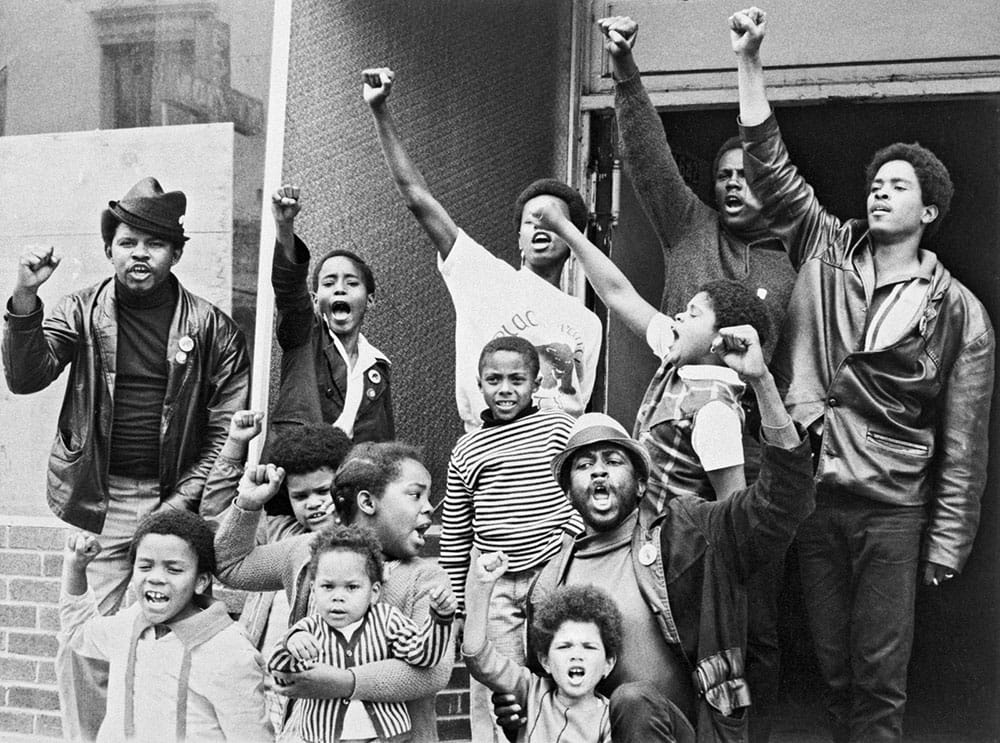By Quenton Spencer
To explore Black/African liberation, I think looking at where we are in history is essential. We are in the thick of late-stage capitalism, and the veil of "democracy" has been all but lifted. If we look closer, though, as Walter Rodney described, this was a "bourgeoisie democracy." When we study the history of the United States, we should constantly be reminded that its constitutional independence in 1776 was not a "democracy" that was to apply to all. If it were truly a new republic that advocated for independence, slavery would've been abolished, and enslaved Africans in America would've been given the proper tools to live sustainable lives.
Instead, this country chose to perpetuate and expand slavery first, at the expense of African people globally, and secondly, with the removal and extermination of the Indigenous populations domestically. As we follow this process of colonization and its deliberate design of the city/state to keep Black, Third World, and the masses of working-class people in a perpetual mode of dependency on external colonial elites, we can see that "independence" and "democracy" has always been false rhetoric from the beginning. Because of this, how can any of us speak of democracy when we, as the people, do not control the means of production (i.e., the land, the raw materials, the tools, the machinery, the factories, etc.) necessary to be self-determined? Or, even on a more immediate level, do not control the places where we work, the places we get groceries, the places we live, and essentially, our communities. This feeling gets old fast among oppressed people.
It is necessary to remind ourselves of this fact and to better identify those in control over the means of production. For this, we will look at a reference from a Black Liberation Army (BLA) Study Guide to describe the bourgeoisie or ruling class and split them into two sectors: the monopoly and the lieutenant sectors. The monopoly sector is the actual owner of the means of production, either outright or jointly with other monopoly capitalists. One example of this sector is the owners of the top 500 companies on the stock market. Other examples are families like the Rockefellers, Duponts, Morgans, Fords, Waltons, etc.
The lieutenant sector accompanies the monopoly sector as its hired administrators. These roles consist of the presidents of their companies, the boards of directors, the generals of various military branches, senators, and other representative roles, including the president of the US. The distinction between the two sectors is that the lieutenant sector does not own enough to control an entire industry. Nonetheless, their cooperation with the monopoly sector is enough to keep this petite bourgeoisie or ruling class circle tight. Additionally, since we know that America was built upon White Western European expansion and domination, we can logically conclude that the tokens that do "make it" into these administrative roles do not have true power either. This is the veil of "bourgeoisie democracy."
This is an intoxicating phenomenon, especially when the media covers the accomplishments of a few hand-picked individuals, and we are left looking at these people as "achievements of the race," "black excellency," or even more insidiously every four years, representatives of the achievements "our" country. This can be seen today when watching the 2024 Paris Olympics. Historically, however, E. Franklin Frazier went into detail describing the role that the black press' plays in perpetuating this phenomenon, stating that,
"Since the Negro press has always claimed that one of its functions was to present to the world a proper picture of the Negro, it has naturally placed much emphasis upon the achievements of Negroes. However, the reports which the Negro press has given concerning Negro achievements are primarily an attempt to compensate for the collective inferiority of the Negro, especially of the black bourgeoisie. Consequently, the significance which the Negro press attributes to these achievements generally has little relation to the world of reality outside of the world of make-believe into which the black bourgeoisie has found an escape." (The Black Bourgeoisie, pg. 179)
This cyclical trance only increases resentment once we plummet back to the reality of our material conditions: rising unemployment, increasing cost of living, problems with healthcare, etc. Consequently, the country, the state, and the city always look for new tactics and representatives to keep us in a daze. These are fronts of counter-insurgency. These are fronts of counter-revolution.
Accordingly, this is why having a "black face in a high place" is not enough! Nor is it logical to celebrate their or any other hand-picked individual Black bourgeoisie success as "achievements of the race ."Thus, when we are talking about "control," we are not referring to "black capitalism" or "a new Black Wall Street." As we know, capitalism gave rise to itself off the bodies and blood of enslaved Africans. It would be a backward and sick model to replicate, especially among ourselves, Black/Afrikan people. Black capitalism would be the opposite of liberation. Instead, we want these hyper-exploitative systems replaced with socialist fronts and socialist institutions with socialist principles. The Black Panther Party recognized this in the 1960s. Thus, when we realize how the police were weaponized against them and other radical left organizations, then we can see its development up till now as the question of Kamala and Trump as president becomes clear.
According to a report from journalist Renee Johnston, we currently have 69 projects advocating for Cop Cities ("Cop Academies") throughout the US (isyourlifebetter.net), along with a self-proclaimed "Top Cop" candidate in Kamala and another (Trump) advocating for "police immunity," running for president. This is highly problematic for Black and working-class communities. Also, when we look at the Palestine situation, there should be a quick understanding of why the settler state of Israel and the settler state of America play footsies together. If we study Israel's history and its forced displacement of Palestinians into the over-militarized, apartheid Gaza strip and the genocidal attacks they're currently suffering under, we can look domestically at poor communities, their over-policing, food deserts, destitute living conditions and see the similarities. This is why we should not only want a stop to Cop City and a ceasefire, but we should want the land freed so oppressed people can be freed from their oppression and have the right to self-determine their destinies. However, this requires organization.
Despite this, the city's belief that providing "better facilities and/or equipment" for the police will solve the problem is flawed. This is similar to the flawed assumption that body cameras are a solution to police violence. Since Mike Brown died in 2013, there has been an increase in police killings each year (Washingtonpost.com). This highlights the need for prioritizing community self-protection. In the documentary "Reimagining Safety," the director suggests that we must get to know our neighbors. It gives one example of community members being aware of who has mental illnesses and getting their emergency contacts so that when there is an emergency, the community can come together to de-escalate potential problems without the involvement of the police.
Due to the mechanisms of capitalism and its side effects of alienation and individualism, some of us might avoid each other. Still, communication with each other must be involved if we plan on resolving our issues without someone possibly dying in the process, especially with the tragedy of Sonya Massey still fresh in our minds. The idea is for there to be an outgrowth of these types of models of community control. Not to be confused with controlling the entire country of the US but our immediate environments, which are predominantly black. Therefore, when we interact with other communities with different cultures that are aligned ideologically and acknowledge the treatment of black/darker skinned people in their societies as well, we will genuinely have an ally, and there can be mutual respect. This requires our collective effort, our collective imagination, and our collective solidarity.
I think it would be dishonest to suggest that I have all the answers when each situation has its own peculiarities and unique characteristics. However, when we are organized and have a proper understanding of our material conditions and what is necessary for a sustainable life for all, we will be able to identify breakpoints within the system and make the appropriate decisions required to break free of dependency. This is when our demands will become clear. This is when we are moving in the direction of liberation.
"Cop Cities, USA" Is Your Life Better Or Are You Just Going Along? https://isyourlifebetter.net/cop-cities-usa/
"People have been shot and killed by police in the past 12 months" The Washington Post https://www.washingtonpost.com/graphics/investigations/police-shootings-database/?itid=lk_inline_manual_19.
Frazier, Edward Franklin Black Bourgeoisie: The Book That Brought the Shock of Self-Revelation to Middle-Class Blacks in America Free Press; First Edition 1997
Quenton Spencer is a writer for the Dallas Chapter of the Community Movement Builders organization

